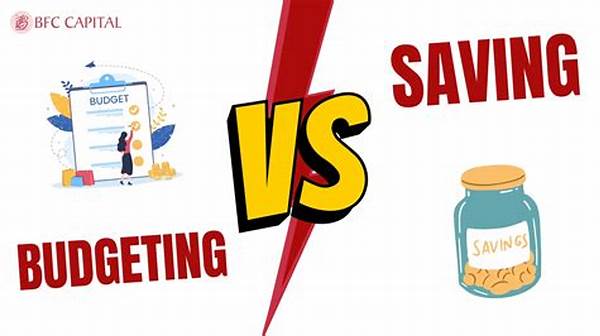Budgeting/saving
Budgeting/Saving
In today’s fast-paced world, where every penny counts, mastering the art of budgeting/saving has never been more valuable. Whether you’re saving for a dream vacation, planning for your kid’s education, or simply trying to build a rainy-day fund, financial management plays a pivotal role in achieving these goals. Indeed, a staggering 70% of individuals who follow a structured budget report feeling more in control of their finances, according to a recent study. Budgeting isn’t just a mundane task; it’s a pathway to financial freedom and peace of mind. Let’s delve into how budgeting/saving can transform your financial landscape.
Read More : Why 50/30/20 Budgeting Still Works In 2025
Imagine a life where every dollar is accounted for, and impulsive spending becomes a thing of the past. This is not a fantasy; it’s the reality for those who embrace budgeting. The process begins by meticulously tracking your income and expenditures, setting financial goals, and adhering to a plan that aligns with your lifestyle. One testimonial from a long-time fan of budgeting states, “It’s like having a personal financial advisor working 24/7, minus the hefty fees!”
But how does one make sure budgeting is fun and effective? That’s where the unique spin of personalized budgeting apps enters the picture, incorporating gamified elements to keep you engaged and motivated. These platforms not only simplify the process, but they also make saving money an enjoyable adventure, often culminating in surprise rewards. The secret lies in turning budgeting from a chore into a cherished daily ritual.
With technology on your side, the time to act is now. Various budgeting and saving apps are available exclusively to help tailor a personalized plan for you. Jumpstart your journey to financial independence by downloading the app that speaks to your unique needs today. Experience the blend of technology, humor, and financial expertise that delivers not just numbers but a story of transformation—a financial narrative that can inspire others as it has inspired countless people globally.
The Role of Budgeting/Saving in Financial Security
Budgeting/saving provides a solid foundation for achieving long-term financial security. The primary function of budgeting is setting limits on spending to ensure that expenses don’t exceed income. By adopting this disciplined approach, individuals can systematically allocate funds toward essential expenditure categories, thus avoiding debt and building savings over time. A well-structured budget includes components like emergency funds, retirement savings, and short-term savings goals which are crucial for financial well-being.
The science of budgeting involves analyzing income and expenditures to identify areas of overspending and to make informed adjustments. For instance, it might reveal that cutting back on dining out or unnecessary subscriptions can free up more money for savings or paying off debt. Furthermore, creating a budget often leads to a heightened awareness of personal financial habits, fostering a culture of accountability and informed decision-making.
On the emotional side, budgeting/saving can alleviate financial stress and anxiety. By knowing exactly where your money is going, you eliminate the uncertainty that often plagues personal finances. This transparency in managing finances not only provides peace of mind but also empowers individuals with the confidence to make significant financial commitments, such as purchasing a house, investing in stocks, or starting a business venture.
Moreover, adapting a budget to accommodate lifestyle changes can ensure uninterrupted progress toward financial objectives. Life is unpredictable—unexpected events like medical emergencies or market fluctuations can occur at any time. A dynamic approach to budgeting allows for flexibility and quick adjustments, ensuring that your financial plan remains robust and effective.
—
Discussion Points on Budgeting/Saving
Saving Made Simple with Technology
The advancement of technology has transformed the way we manage finances, especially when it comes to budgeting/saving. The accessibility of various budgeting apps has made it easier than ever for individuals to track their spending and saving habits. Not only do these tools provide a comprehensive overview of your financial situation, but they also offer real-time notifications and advice to keep users on track.
Integrating advanced algorithms, many modern budgeting applications can predict potential financial challenges before they arise, allowing users to adjust their habits proactively. This predictive feature can be instrumental in avoiding overdrafts and accumulating debt. Furthermore, many users find motivation in setting and achieving financial milestones offered by these apps, guided by personalized goals and achievement rewards.
Utilizing these digital tools successfully requires a clear understanding of one’s financial goals and discipline in sticking to a predetermined plan. The benefits of instant access and active monitoring help cultivate better financial habits and bolster long-term savings efforts. As such, choosing the right app that resonates with your personal financial objectives is a crucial step toward smart saving.
Building Good Habits
Establishing positive financial habits through budgeting/saving is imperative for stable and prosperous financial management. The journey begins with distinguishing between needs and wants—a fundamental step in creating an effective budget. Once the essentials are covered, focus can shift to setting achievable financial targets for the short and long term. Regularly reassessing these goals ensures they remain relevant to your evolving lifestyle and financial capabilities.
Accountability is another critical aspect of maintaining good financial habits. This can be supported through regular financial reviews, where you analyze income and expenditure trends to identify potential adjustments. Cultivating habits such as regularly contributing to savings and retirement accounts, minimizing discretionary spending, and paying bills promptly all contribute to financial stability.
Engaging family members or friends in your budgeting process can also enhance accountability, providing a support network to keep you aligned with your financial objectives. In turn, these practices foster a healthy relationship with money, laying a strong foundation for future financial success.
Seeing tangible progress towards financial goals can be incredibly rewarding, offering motivation and inspiration to continue making smart financial decisions. With a solid budgeting and saving plan in place, fiscal discipline becomes second nature, turning aspirations into reality.
—
9 Key Takeaways on Budgeting/Saving
1. Understand Your Cash Flow
2. Set Clear Financial Goals
3. Utilize Technological Tools
4. Differentiate Between Needs and Wants
5. Review and Adapt
6. Engage Family in Financial Planning
7. Cultivate Consistent Saving Habits
8. Practice Mindful Spending
9. Empower Financial Education
Mastering Your Budgeting Journey
Embarking on the quest of budgeting/saving is both an art and a science. It is about weaving the threads of financial abundance through the fabric of everyday life. Creating an effective budget requires understanding the nuances of your financial situation—a process of detailed observation, strategic planning, and, most importantly, steadfast commitment.
By embracing budgeting, one can see a marked difference in how resource distribution transforms daily decision-making. It shifts perspective from reactive money management to proactive allocation, offering a balanced view of how present choices pave the path to future success. This proactive standpoint isn’t about deprivation; it’s about acquiring the freedom to spend mindfully and sustainably.
Recognizing the role of budgeting/saving in contributing not just to financial wellness, but also to overall life satisfaction, encourages a holistic approach to financial planning. By continually refining budgeting skills and habits, individuals open doors to new opportunities for personal growth.
Budgeting is a commitment to oneself and loved ones, ideally realized through easily achievable steps and perpetual refinement—a journey that promises not only financial growth but a richer life experience characterized by abundant opportunities and peace of mind.




